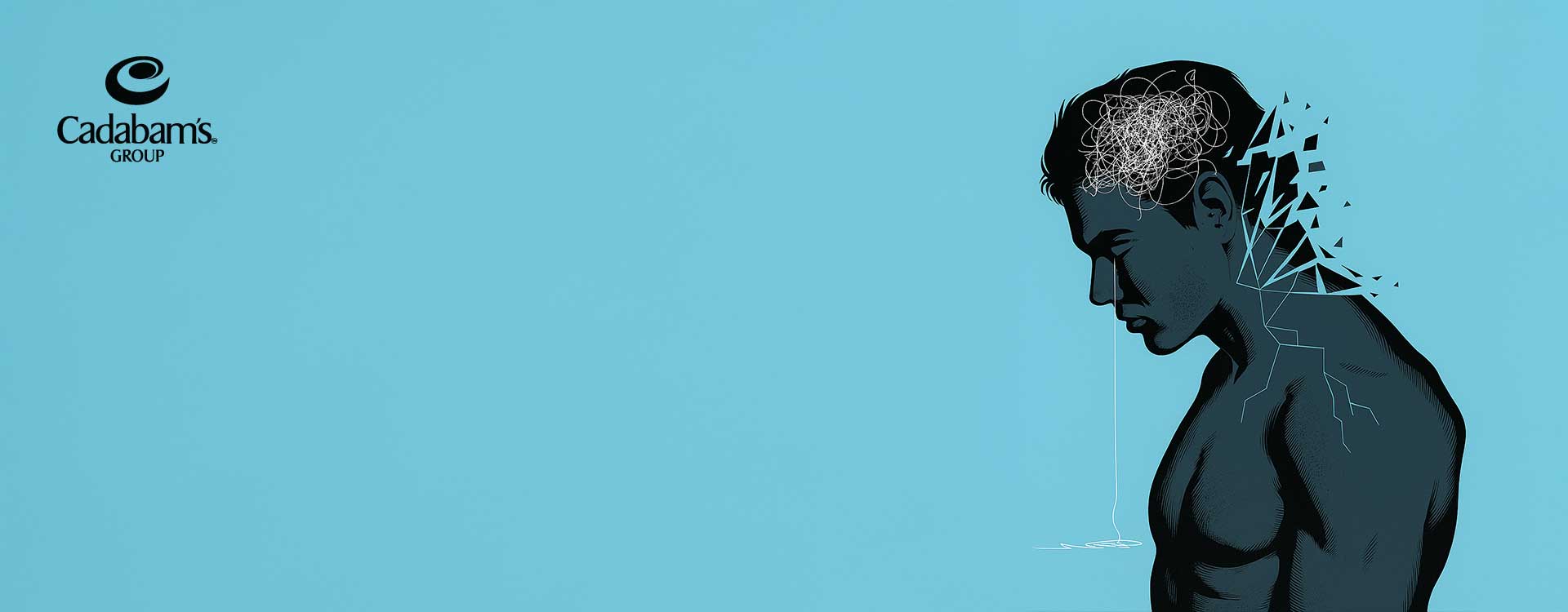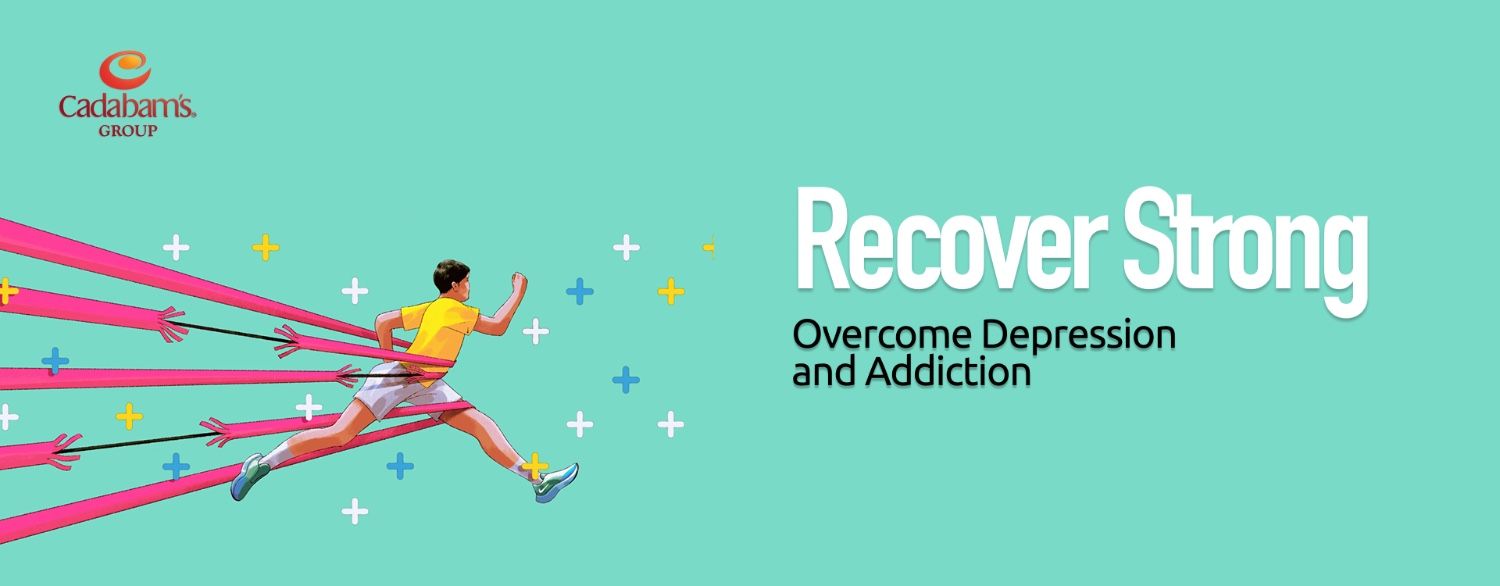Managing one's mental health can be so overwhelming, especially in cases where a person needs immediate help. Inpatient treatment for anxiety and depression caters to the needs of people with severe depression and anxiety issues. They can have a profound impact on a person's daily life and social relationships.
Cadabam’s provides holistic care for individuals struggling with these conditions in a structured environment, supporting long-term recovery.
Understanding Inpatient Treatment for Depression and Anxiety
Inpatient treatment for anxiety and depression is a specialised program for patients whose conditions demand more intensive and immersive attention. Each individual going through depression and anxiety exhibits different symptoms, and while some can manage it without 24/7 watch, many can’t.
Inpatient treatments cater to providing optimum care in an institutionally controlled environment where professionals can provide immediate interventions when faced with dangerous situations.
What is Inpatient Treatment?
The concept of inpatient treatment involves admitting individuals to facilities like the best inpatient depression treatment centres, where professionals provide around-the-clock care. These centres focus on various mental health needs, including inpatient treatment for anxiety and depression, while also addressing co-occurring challenges like substance abuse and anger management through anger management inpatient treatment programs. Facilities that focus on inpatient depression treatment centres provide a safe space for individuals struggling with depression, anxiety, or other conditions, allowing them to heal under constant supervision.
Benefits of Inpatient Treatment for Anxiety and Depression
There are several benefits of inpatient anxiety treatment and inpatient depression treatment centres, including the following:-
- Access to many personalised therapies and treatments, which may include anger management inpatient treatment.
- 24/7 medical supervision by a team of professionals and immediate interventions
- Creating a safe and supportive space is vital for individuals at risk of suicide.
- Structured routines that help in regaining your health
- Interaction with peers in inpatient treatment for anxiety and depression programs
- Provide relapse prevention and skills
Signs You May Need Inpatient Depression and Anxiety Treatment
If you experience persistent sadness, severe anxiety, or suicidal thoughts, inpatient care at the best inpatient depression treatment centres may be necessary. Individuals struggling with social withdrawal, chronic physical symptoms, or unmanageable stress also benefit from inpatient treatment for anxiety and depression, which provides tailored solutions to complex issues.
Persistent Sadness and Hopelessness
Feeling sadness and hopelessness a few times is a natural process of our emotional well-being but if it persists for a long time and impacts your daily functioning, seeking professional inpatient care can have immense benefits.
Severe Anxiety and Panic Attacks
Extreme anxiety or recurrent panic attacks with severe impairment in daily routine life and requiring hospitalisation.
Difficulty in Daily Functioning
Unable to perform minimum self-care activities, including personal hygiene and attention to basic needs, eating and sleeping for several days due to extreme depression or anxiety.
Self-harm or Suicidal Thoughts
If a person is having suicidal thoughts, has a suicide attempt, or has tried to hurt themselves in any way, they should have professional interventions without further aggravating the condition.
Substance Abuse Issues
Mental health conditions often co-exist with substance abuse. Unfortunately, many individuals turn to substances to reduce their pain and discomfort, worsening the condition without realising it.
Unmanageable Stress
Stress can stem from many events like rejection, loneliness, job loss, financial difficulties, or relationship problems. Being unable to manage healthily can impact your coping skills and impact your overall well-being.
Chronic Physical Symptoms Without Clear Cause
Having physical symptoms such as headaches or fatigue that continue day in, and day out, which cannot be explained by any other medical condition.
Social Withdrawal
Avoiding all the friends and family gatherings and not participating in any social activities that were once enjoyed because of anxiety or depression.
Aggressive or Violent Behaviour
Sudden new evidence of aggressive or violent behaviour impairing your relationships with families, friends, colleagues, or romantic patterns. They are linked to a mental health condition.
Previous Outpatient Treatment Was Ineffective
If you've received outpatient treatment without an improvement in your condition, inpatient treatment is the highly intense care you need to improve your condition.
How Inpatient Treatment Works for Anxiety and Depression
Inpatient anxiety treatment and inpatient depression treatment centres are structured to be a stable environment that allows one to monitor one's condition often to seek treatment for whatever condition occurs.
Initial Assessment and Diagnosis for Depression and Anxiety
Initial assessment of a person with depression and anxiety entails an intensive psychiatric review of the patient's medical history, current symptoms, and past treatments to determine the exact level of the illness, hence giving a correct diagnosis to allow for the right treatment.
Customised Treatment Plans
All patients receive a unique treatment plan, customised according to individual needs and the severity of their condition. Commonly, the plans include a combination of behavioural and psychotherapies, medication management, lifestyle adjustment, and mindfulness exercises to treat both the sources and manifestations of depression or anxiety.
Types of Therapies Offered for Depression and Anxiety
These include individual psychotherapy, group therapy, family counselling, Cognitive Behavioural Therapy (CBT), Dialectical Behaviour Therapy (DBT), and relaxation techniques through meditation and yoga. From these treatments, the symptoms are reduced while facilitating more emotional regulation and replacing maladaptive coping skills with healthy ones.
Support Systems and Aftercare for Depression and Anxiety
Patients who undergo inpatient care are discharged with comprehensive aftercare plans that encompass further therapy, medication management and support group recommendations, among others. For which the best inpatient anxiety treatment and inpatient depression treatment centres are required.
This ensures that improvements made in the centre are maintained. Moreover, comprehensive inpatient treatment for anxiety and depression emphasises relapse prevention and equips patients with coping strategies, ensuring long-term stability.
Finding the Right Inpatient Treatment Centre
The right facility will identify your experience, treatment options offered, and an approach of the centre towards mental health care. Whether you need inpatient treatment for anxiety and depression or specific programs like anger management inpatient treatment, choose a facility that aligns with your unique needs. The best inpatient depression treatment centres will combine evidence-based therapies with holistic care to ensure optimal recovery.
How Cadabam’s Can Help with Depression and Anxiety
Cadabam’s aim is to provide compassionate, multidisciplinary treatment for depression and anxiety that involves evidence-based therapies and holistic practices and encourages progressing at their own pace.
Cadabam’s Approach to Treating OCPD
Our Obsessive-Compulsive Personality Disorder (OCPD) program combines psychotherapy, medication management and behavioural therapy for long-term recovery. The programs and care plan are designed by a team of expert mental health professionals and offered in a non-judgemental space.
Contact Information for Cadabam’s
If you are searching for a solution to your problem, Cadabam’s Rehabilitation Centre can help you with its team of specialized experts. We have been helping thousands of people live healthier and happier lives for 30+ years. We leverage evidence-based approaches and holistic treatment methods to help individuals effectively with their inpatient depression and anxiety treatment. Get in touch with us today. You can call us at +91 96111 94949.
FAQ
Can you be hospitalised for major depressive disorder?
Yes, in case of severe symptoms and having some suicidal thoughts or failed outpatient treatment.
Can you be hospitalised for severe anxiety?
Yes, such as if anxiety requires constant attention, frequent panic attacks, or symptoms that cannot be managed.
How do I know if I need inpatient treatment for my mental health issues?
If you experience persistent sadness and hopelessness, severe anxiety and panic attacks, difficulty in daily functioning, self-harm or suicidal thoughts, substance abuse issues, unmanageable stress, chronic physical symptoms without a clear cause, social withdrawal, aggressive or violent behaviour, and previous outpatient treatment was ineffective.
What are the benefits of choosing inpatient treatment over outpatient treatment for depression and anxiety?
Inpatient care services provide continuous care, a structured daily schedule, one-on-one therapy, and a conducive environment to provide constant support for quick recovery.
.webp)







